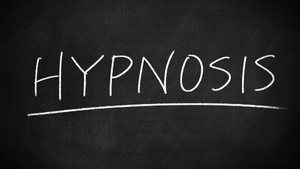
People wonder, “Is it Possible for Hypnosis to Cause Me to Reveal Secrets?” They imagine that “they will do everything while in the hypnosis, including revealing all secrets!”
Despite the widespread notion, it is impossible to be hypnotized into doing anything against your will.
It is easy to push you into a hypnotic state if you don’t want it. You choose to submit yourself instead to a hypnotic state. Sure, some people tend to have “more” open hypnotic suggestions, but It is a deliberate modification of one’s consciousness, over which one always maintains complete control.
Depending on the therapist, a session typically lasts anywhere from 60 minutes to two hours.
Throughout that session, the hypnotherapist will speak to you about what you wanted to change and why you desired to change it. After that, the real hypnosis will typically last for between 20 and 30 minutes that session in general. That, you are actually aware of most of the things around you, and you have control.
Can I tell secrets when I’m under hypnosis?
Hypnosis is not something that is “accomplished upon people.” You are the one who creates this state of mind for yourself; a professional hypnotherapist is only there to coach you through the process. While in a hypnotic state, you will never lose any of your control over yourself.
Hypnosis does not include any kind of mental control. Under the influence of hypnosis, people may most certainly even “lie”.
However, when you are relaxed and calm state, you might say something:
- Because you are safe, you feel connected and calm, which leads to revealing some of your secrets. Also, in a hypnosis session, your cortisol level drops, and you might not feel a “danger” state; that way, you are more likely “open” to explain those things such as your secrets, fears, and other things you have had.
- Trusting a hypnotherapist is the key to deep diving into the subconscious mind. However, that relaxation and calmness make you feel you are safe. Trusting is important because it will lead you to better “success.”
- More than half of the general population has the potential to be hypnotized, as reported by the World Health Organization. Nevertheless, many of them are unable to. Some individuals are able to resist hypnosis, while others are more susceptible to its effects.
More information: What Do You Experience During Hypnosis?
What Are Hypnotism And Hypnotic Trance?
A state of hypnotic trance in which the patient is open to suggestions made by the hypnotist. Yet, the trance state can be different, depending on the resistance or belief about hypnotizing.
Not just hypnosis itself but other repetitive activities such as Rhythmic, such as dancing, jogging, breathing exercises, chanting, meditation, prayer, and group rituals, may all be used to produce trance states in participants.
Trances may also be induced by relaxing the body and mind, receiving a massage, or taking a warm bath. Focusing the mind on an image, an idea, or the sound of someone’s voice is another effective method. Even you can be “put into” a trance state while meditating.
Prayer, meditation, or chanting are all excellent ways to enter a trance state. Yet, you can try self-hypnosis to experience the hypnotic state.
What Are Some Hypnosis Myths and False Ideas?
There is a great deal of misunderstanding and false beliefs around hypnosis and trances induced by hypnosis.
The majority of skeptics in the field are there as a result of misleading information in the media. Who can forget some of the hypnosis variations made popular by stage performances, television, and movies? So, what are the common myths and misunderstandings about hypnosis?
Some individuals dislike the name “hypnosis,” so they substitute phrases like “active meditation” and “creative visualization.” As a result, it is critical to understand what hypnosis is not.
Myth 1: Hypnosis is the same as sleeping. The fact is that you are completely awake when under hypnosis. When the eyes are closed, and the body remains motionless during classic hypnosis, the subject may appear asleep.
- According to Hypnoterepist ERIC Kand, Your subconscious mind will be less receptive to suggestions for changes if you fall asleep throughout hypnotherapy. (source) Because you might miss out on some of the session’s advantages.
- Sleep is not trance, so hypnosis does not make the same as falling asleep. A person stays awake, but their attention is focused in a way that may make them seem hypnotized or in a trance.
- According to neuroimaging studies, sleep has been linked to certain patterns of brain activity, and they have not been established for hypnosis.
When people fall asleep during a session, they don’t take in the hypnotic suggestions and won’t benefit much. I suggest reading about hypnosis article:
For more information: What Are Some Myths And False Ideas About Hypnosis?
In summary, you can tend to reveal more secrets when you are in a relaxed state, not because of hypnosis. You are aware of what is happening, but you might choose to reveal your secrets or fears because you don’t have any fear at that moment. That’s called a “relaxation” response.
Outline
Hypnosis can be used to help someone remember details they may have forgotten. Hypnosis can also change someone’s perspective or attitude toward a certain topic.
However, it cannot force someone to tell you something they don’t want to reveal or make them do something against their will.
